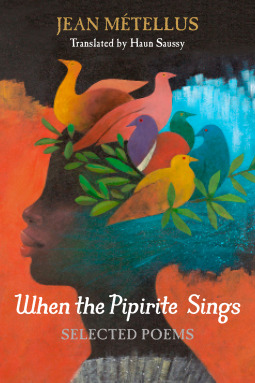What do you think?
Rate this book


104 pages, Paperback
First published April 15, 2019
When the pipirite sings the Haitian peasant
has already crossed the day’s threshold and
forms in the air, one step behind sun,
the outline of a crucified man embracing
life
Then blessing the earth with pure winds of
devotion, first greets the light-soaked azure
and then drenches the forsaken hillside–no
favor and no fertilizer–with prayers
Around the pipirite’s song hovers the threat of
a return to tears When the pipirite sings the
hours dangle from the plantations’ lips
And if yesterday came back what then
And the Haitian peasant morning after
morning leaps across dawn’s tongue to slay the
venom of his nights and crush his nightmares’
thorns
And in the day’s breath all the Iwas are named
Great black man remember / Remember that it was words, sounds and colors / That condemned you, burned you, assassinated you / Do you remember your victory / Do you rememeber the victory of calindas and of Negritude / Of real Negritude on Haiti's soil [...] Forget none of your past / Neither Negrism nor Negritude / If the world despises you don't be scandalized / And know that this harsh exclusion will perserve the race of your children
And memory dressed in stars still signs with aflourish across the wound of oblivion / Intrepid she rushes to all fronts, reviving despair